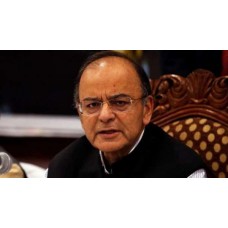Impact of Polices on Direct Tax Collections
“The First Sixty-Seven years after Independence from 1947 to 2014 saw a total number of 3.82 crore assesses filing tax returns. Obviously, in comparison to total population of almost 1.3 billion, this figure appears highly inadequate. The total direct tax collection (income tax) in 2013-14 was Rs.6.38 lakh crore.
Prime Minister Modi led NDA Government had a multi-pronged strategy to increase the tax base. A campaign involving various steps to flush out black-money, including black-money outside the country, was initiated. The demonetisation led to a lot of people in possession of undeclared cash depositing the same in the banking system.
The source of the money was now questioned. Almost 18 lakh people were identified who had made deposits disproportionate to their returned incomes. The use of technology helped the tax department significantly. Most of the functioning of the Income-tax Department is now online, returns are filed online, queries are addressed online, assessment orders are handled online and refunds are also made online.
Technology is also used for reconciliation purposes in order to detect those who should be filing returns but are non-filers. The implementation of the Goods and Services Tax (GST) as a single consolidated tax has had a significant impact even on direct taxes. Those who have disclosed a business turnover for the GST now find it difficult not to disclose their net income for the purposes of income tax.
What would be the combined impact of all these measures on India’s direct taxation base? We had targeted to optimise the base increase without any increase on the tax liability. India’s tax to GDP ratio in four years increased by almost 1.5%.
On the contrary, a large number of taxpayers in each of the four Budgets of the present Government has benefitted from relief given. Today a medium-term assessment of the impact of these steps can be made. In four years, the number of assesses has increased by 64.6%. The total number of returns filed was 6.86 crore in FY 2017-18.
The number of new assesses who filed returns in FY 2017-18 were 1.06 crore. I hope that the percentage increase when the Government completes its first five years would be significantly higher. The total income tax collection for the year 2017-18 is Rs.10.02 lakh crore, a four year increase of 57%. Last year, despite formidable economic challenges, the income tax collection managed to grow by over 18 percent.
Last year, the impact of the GST on Direct Tax Collection was not visible. Since GST had been imposed in the middle of the year, it will be more apparent this year. The first big news for this year is that the advance tax deposit during the first quarter of this year has seen a gross increase of 44% in the personal income tax category and 17% in the corporate tax category.
After repayment of refunds due to some excess tax paid in earlier years, which are usually paid back in the first quarter, the net amount would be somewhat lesser. But if the same trend continues in the next three quarters, one expects a significant increase in the direct tax collection this year.
The first indication is that the spending is higher, consumption is higher and corporates are seeing increased sales and a greater prospect of profitability. But increase in the amount of collections in category of personal income tax is also due to more people coming within the tax net.
There is also the impact of the GST visible this year. This unprecedented taxation growth is a result of the anti-black money measures, use of technology, demonetisation and the GST. Most of these measures were severely criticized by the Congress Party.
This is just the medium-term impact of some of these measures. The long-term impact would be significantly higher. Higher tax collection would enable us to continue with the developmental programmes in the country, not to impose any extra burden on the taxpayers and yet maintain the targeted fiscal deficit.




